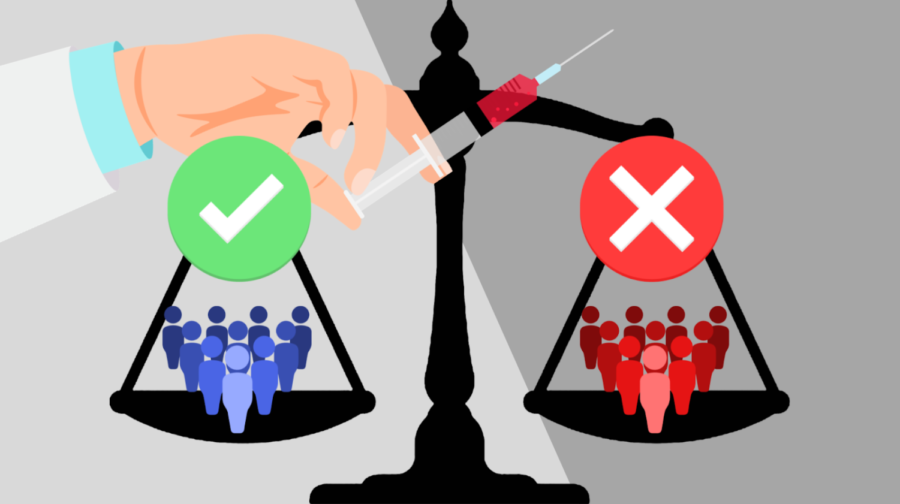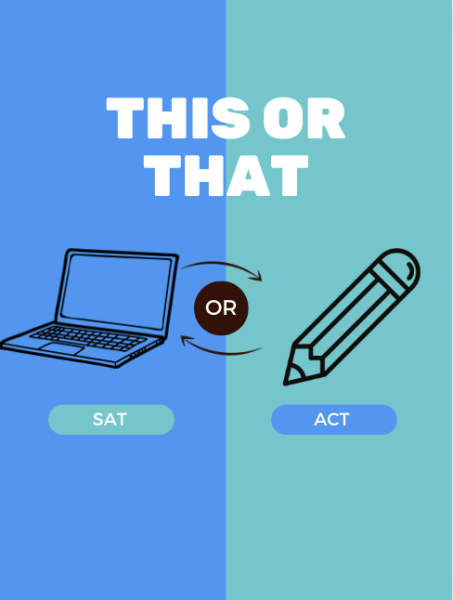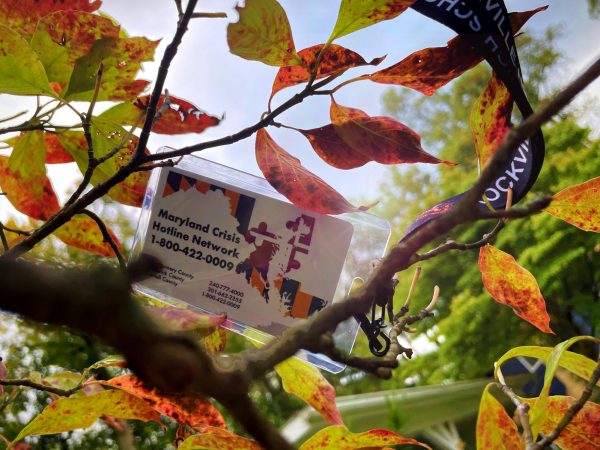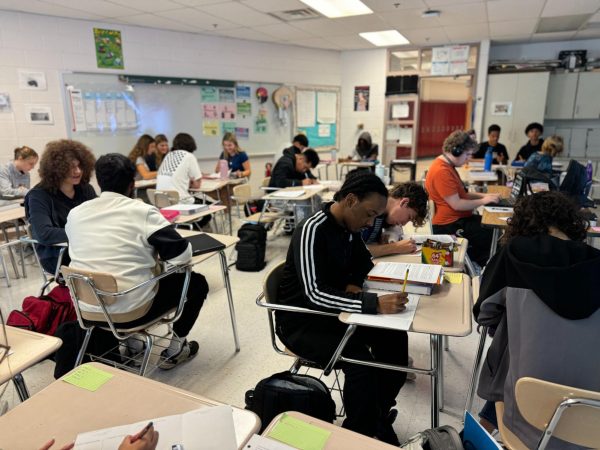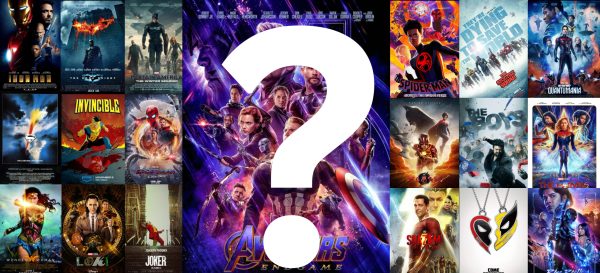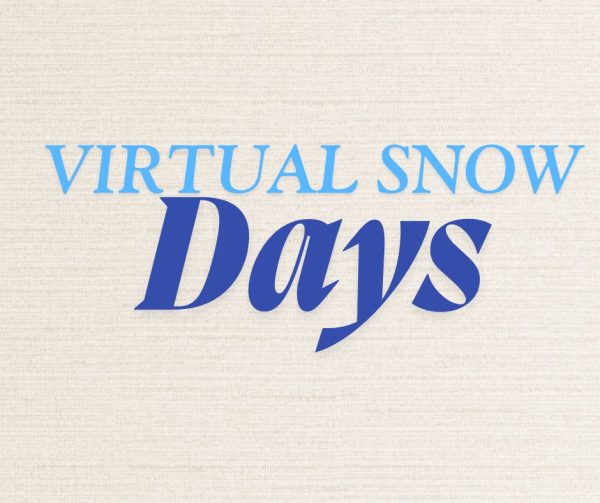Unvaccinated v. Anti-Vaxxers: Why There’s Hope for One
Now a year ago, in Dec. of 2020, there was widespread relief in the development of a COVID-19 vaccine by Pfizer-BioNTech, with Moderna and J&J/Janssen following suit. I remember the eagerness of my friends and family, along with the gratitude I felt upon receiving the shot on my sixteenth birthday.
As months progressed, I was shocked by the percentage of vaccinated Americans. Now at about 60%, according to the CDC as of Dec. 14; this horrifically low number outraged many, myself included. To me, the lack of vaccinations wasn’t because of inaccessibility– but deliberate ignorance. I found myself nodding along to the public shaming of unvaccinated athletes, celebrities, and community members. But this public shaming is counterproductive. And so is branding all unvaccinated individuals with the label, “anti-vaxxer.” The tendency to believe that all vaccinated people are pro-vaccine and all unvaccinated people are anti-vaccine is dangerous. Public vaccination should not be a battle between those who have and have not received the vaccine. It should be a conversation with mutual respect. And that starts with understanding the difference between the terms “anti-vaxxer” and “unvaccinated.”
So what is the difference between anti-vaxxers and the unvaccinated? Anti-vax indicates that an individual’s position is strictly against vaccination. The name also comes with a harsh negative stigma. The term, anti-vaxxer, is generally used to describe activists or individuals who deliberately spread false information regarding the vaccine. On the other hand, being unvaccinated is only a status. Therefore, while anti-vaxxers are generally unvaccinated, unvaccinated individuals aren’t necessarily anti-vaccine.
The percentage of unvaccinated vaccine-eligible Americans is about 40%. But an NPR poll conducted in Aug. found that only 19% of U.S. adults said that they didn’t intend to be vaccinated. So was the survey wrong? Did people lie? My answer is vaccine hesitancy. In a time full of uncertainty, hesitancy is natural. For the many who are already vaccinated, science was reason enough. Even against the Omicron and Delta variants, the COVID-19 vaccine has proven to be effective, greatly reducing the risk and seriousness of contracting them. But even the vaccinated aren’t without questions. Did I take the right shot? For how long will the vaccine be effective? Are there long-term consequences of the vaccine scientists are unaware of? And with the booster shots now eligible for that 16 plus, many more questions have arisen. These questions are legitimate, and along with many, don’t have definite answers.
Many of the same questions and concerns are shared with the unvaccinated community. It isn’t because unvaccinated individuals don’t care about COVID-19, nor is it because they are moronic. They are just unsure. And with the previous administration, constant developments in research, and the general spread of misinformation, who can blame them?
So instead of pursuing this witch-hunt of the unvaccinated, the real question we should be asking is what might it take to convince them?
I asked this question to one of my unvaccinated family members, Tish DeLeon.
“Until the COVID vax is tested to include further studies, I am not comfortable getting it,” she said. “I feel that it was rushed to market without adequate research on possible immediate or long-term side effects.”
While concerns about the long-term effects of vaccines are legitimate, it is important to be aware of misinformation. Social media has breathed life into many forms of misinformation, including conspiracies and false stories. As a community, we must avoid falling into and engaging in such traps.
DeLeon expressed, “In my opinion, the only wrong decision is made purely out of fear, social pressure, or emotional reactivity.”
And on that, I agree. However, I believe more informed decisions would be made if we all put empathy before politics.
The reality is that the unvaccinated aren’t an epidemic of their own–– needing to be eradicated like a disease. They are people all around us. Friends, family, neighbors, and colleagues. Instead of attempting to stifle the conversation, it is far more helpful to share good information about vaccines from trusted sources.
Too often I observe, and at times are guilty for, politicizing vaccination statuses. But when has berating changed people’s minds? And simply, as it is, herd immunity isn’t something that we can achieve without the cooperation of currently unvaccinated individuals.
Our job as a community is to break the stigma, and stop using the terms “anti-vax and unvaccinated” interchangeably. We should hear out all concerns and appeal to them as humans. By sharing personal stories and directing unvaccinated friends, family, and community members to credible sources like the CDC, we have the power to defeat this pandemic – without losing our humanity.
Only together, is there hope after all.


